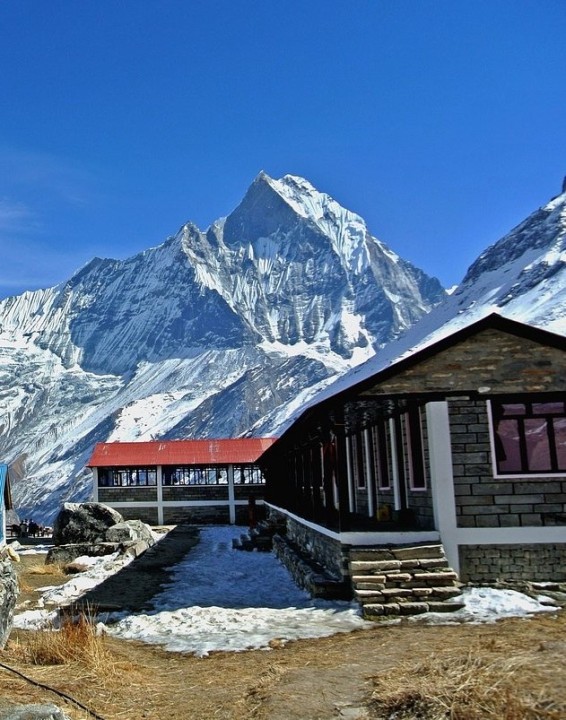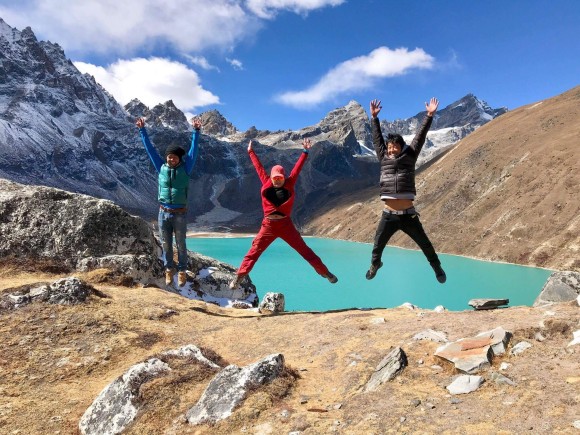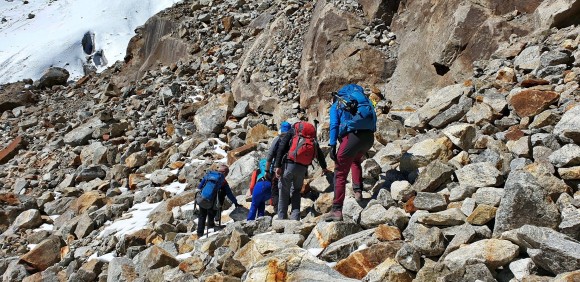It all started in 2021, during a trek to Everest Base Camp when the three, along with Sarki Sherpa, a Tour Leader and Co-founder of Soul Himalaya Treks & Tours, Kathmandu, came up with the initiative to help the students of Patle. "On our trek, we learned that often children in Sarki's home village of Patle, Okhaldhunga, cannot get to school as they have no warm outerwear," said Kathleen McCabe. "It was heartbreaking to understand that some of the children walk over two hours each way to class, and without warm clothing, and facing cold, wind and snow, they simply can't attend school."

Soul Himalaya
Aug 10,2023Go Green, Breathe Clean!
While the increasing curiosity of human beings to travel and explore new places is certainly a good thing, sometimes, their actions can have devastating repercussions on the environment. We stay at a place for only a couple of weeks, but the impacts of our actions stay on the environment of that place for a long period of time. The increasing popularity of tourism has brought an increase in the threat to the environment and the surroundings. The once secluded and pristine mountains of Nepal are now overcrowded with human populations and degraded by their actions and impacts. This has not only affected the environment but also the lives of communities that live within this environment. However, it is our actions and decisions are to blame for these negative impacts. So by bringing small changes in our decision, we can minimize our impacts on the environment and nature, and take the full travel experience. Below are some of the significant, mindful steps to embark on your journey responsibly.
Opt for Ecofriendly accommodations:
When choosing places to stay, always opt for accommodations that are sustainable and eco-friendly. Homestays run by community members could be an example of sustainable accommodation choices, with a touch of authenticity. Do your research beforehand to make sure you make the right choice when booking accommodations.
Use Public and Private Transportations:
While choosing transportation, choose public transportation services to reduce carbon emissions. For shorter distances, choose walking or use bicycles for eco-friendly transportation services.
Reduce Plastic and Paper Usage:
Use recycled bags, carry water bottles, and avoid using paper straws, and plastic bags for a better environment. Reduce the use of paper by avoiding printed tickets, bills, etc and using digital modes where possible.
Respect Wildlife:
Observe wildlife from a distance, avoid making noises, or teasing animals, and maintain a clean environment to make sure your travel does not impact the wildlife residing there.
Respect the culture:
Show your support to the communities by respecting their culture, way of life and practices. Travelling to a new place means diverse cultures, ways of life, and traditions. Do proper research and make sure that your actions are in line with the communities' culture and practices.
Support local enterprises:
Show your support to local businesses by opting to use locally-made goods and services. Local goods reflect the culture and are made using natural resources available in the surroundings. Such enterprises are eco-friendly and use traditional technologies, and even a single purchase can largely benefit the communities.
Stay on Designated Trails:
Designated trails are the paths that have been made for trekking and traveling. Trekking through untravelled trails can cause the soil in the area to degrade which can eventually cause erosions. So stay on designated and used trails.
Minimize energy uses:
Turn off the lights, electric supplies when you do not need them to reduce the use of energy and minimize your carbon footprint.
Minimize the use of woodfires:
When camping, opt for other methods of cooking food like electric stoves and minimize the use of woodfires.
read more
View allTourism allows us to explore unexpected destinations, encounter new experiences, and delve into the unique way of life of people. Although we might eventually have to depart from our travel destinations, it is important to realize that there are communities that live there, whose lives can be impacted by our actions. At SoulHimalaya, we recognize that our journeys leave footprints, and we' re dedicated to ensuring that these footprints lead to positive change. Keeping this in mind, we constantly work to bring a difference in the lives of the communities that we encounter on our journey.
We are delighted to announce the recent successful initiatives aimed at enhancing educational opportunities for children in the Far West Dolpo region.
Search Trips
Our top-selling trip
Here are some of our most popular trips. Join the Soul Himalayan Travel team to experience Asia at its best.










